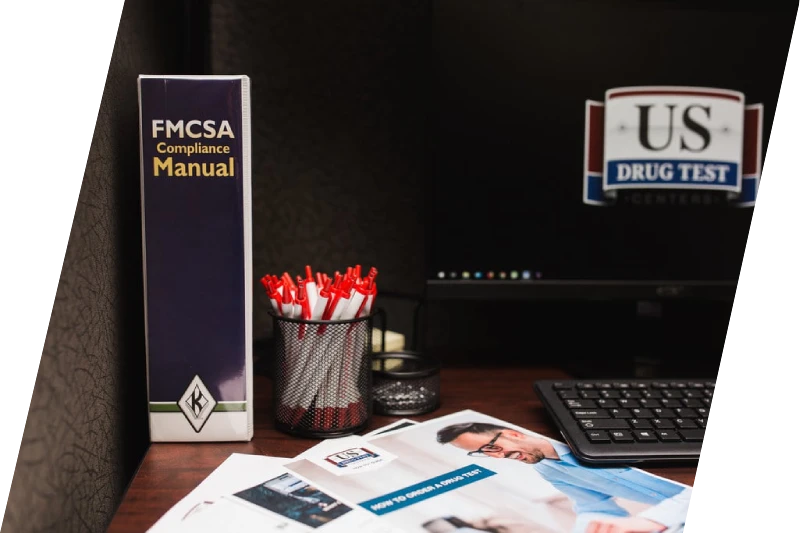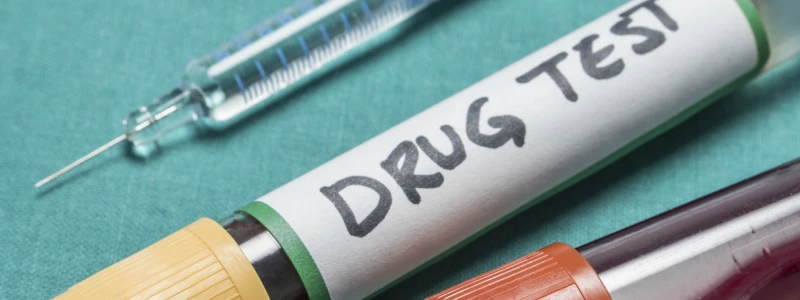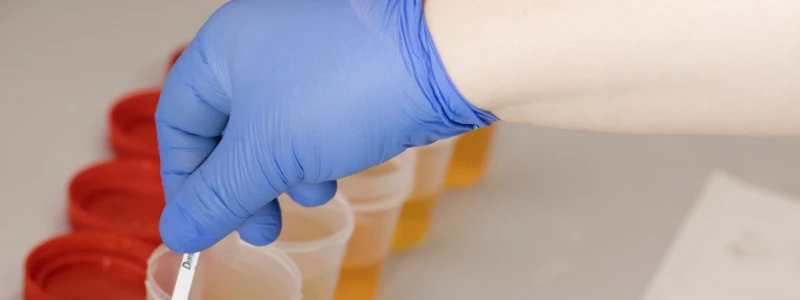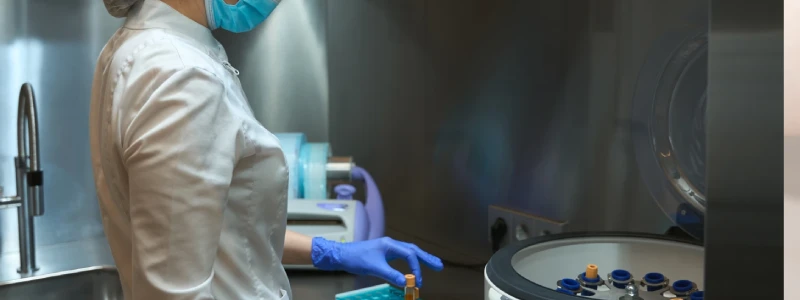
Last Updated: December 12, 2023
The Department of Transportation has strict guidelines when it comes to maintaining a drug-free workplace. DOT FMCSA drug testing is vital.

The Federal Motor Carrier Safety Administration (FMCSA) is an agency in the United States Department of Transportation that regulates the trucking industry and motor coach bus industry in the U.S. CFR Part 382 of the FMCSA regulations deals with controlled substances and alcohol use and testing. The purpose of CFR Part 382 is to establish programs designed to help prevent accidents and injuries resulting from the misuse of alcohol or use of controlled substances by drivers of commercial motor vehicles (CMVs).
Employers and employees subject to the FMCSA CFR Part 382 regulations for drug and alcohol testing include those with a commercial driver’s license operating one or more of the following commercial motor vehicles (trucks or buses):
Employers including owner-operators who violate the FMCSA drug and alcohol testing program regulations may be subject to civil or criminal penalties. Fines of up to $10,000.00 per occurrence may be administered.
New operators are subject to a new entrant exam to verify compliance. The new entrant will be monitored during the initial 18-month period of operation. The FMCSA will:
It's critically important that the program for misuse of alcohol or use of controlled substances be in compliance. A new entrant will automatically fail the safety audit for violations related to:
Drug and alcohol testing also includes random testing and reasonable suspicion testing.
Ready to take the next step? We have over 20,000 locations across the nation! Call 866-566-0261 or order your test online.

Random drug testing is an important component of your program. It’s critical to have a knowledgeable provider to assist so that you are in compliance. Employers can be held responsible for service agent errors and resulting civil penalty actions for noncompliance even if the issues are caused by your drug testing provider.
DOT regulations mandate that the company establish a random drug and alcohol testing program. The FMCSA annual rate for FMCSA random drug testing must be 50% and the rate for alcohol testing must be 10%, based on the average number of driver positions.
Selection must be made by a scientifically valid method and testing must be spread reasonably throughout the calendar year. If the company conducts testing through a drug and alcohol consortium FMCSA, the number of drivers to be tested may be calculated based on the total number of drivers covered by the consortium.
Random alcohol testing shall only be conducted on a driver while on duty, just before driving, or just after driving.
Owner-operators must be enrolled in a random testing drug consortium FMCSA. An FMCSA random testing consortium will help you easily manage the random testing process for compliance with regulations with CFR Part 382.305. Learn more about US Drug Test Centers' owner-operator random testing consortium.

Reasonable suspicion drug testing for FMCSA is another necessity. The company may require a driver to submit to a drug or alcohol test when reasonable suspicion exists that the driver has violated the drug use or alcohol misuse prohibitions contained in the regulations. The determination must be based on specific, contemporaneous, articulable observations concerning the appearance, behavior, speech, or body odors of the driver.
The company official who makes the determination that reasonable suspicion exists must receive at least 60 minutes of training on drug use and at least an additional 60 minutes of training on alcohol misuse. The person who determines that reasonable suspicion exists must not conduct an alcohol test.
Alcohol testing for reasonable suspicion is authorized only if the observations are made and the test conducted while the driver is on duty, just before driving, or just after driving.
Our line supervisor training programs are critical to successful reasonable suspicion testing. Supervisor training is a requirement of an FMCSA DOT-compliant drug and alcohol program.

Other testing requirements for DOT FMCSA programs include:
FMCSA DOT drug testing requires laboratory testing (49 CFR Part 40 Subpart F) for the following five classes of drugs:
A driver fails an FMCSA drug test or alcohol test by refusing to test, testing positive to a drug test, or registering a 0.04 or greater alcohol content on FMCSA alcohol testing. All of these results require the driver to be immediately removed from performing safety-sensitive functions (i.e., driving CMVs) until successful completion of the return-to-duty process with a DOT-qualified substance abuse professional.
US Drug Test Centers serves all markets regulated by the Federal Motor Carrier Safety Administration for drug and alcohol testing FMCSA programs. Our clients include owner-operators, private fleets, for-hire carriers, large trucking companies, small trucking companies, and bus companies both large and small. Get in touch with us to request immediate service to set up an account.
US Drug Test Centers offers both individual tests as well as drug test panels. To order your test, call 866-566-0261 or order online today!
We are often asked what employees must be included in the FMCSA DOT drug and alcohol testing program. FMCSA guidance states any person who operates a Commercial Motor Vehicle, as defined in §382.107, in intrastate or interstate commerce and is subject to the CDL requirement of 49 CFR part 383. The 382.107 definition is as follows:
Commercial motor vehicle means a motor vehicle or combination of motor vehicles used in commerce to transport passengers or property if the vehicle
It's important to note that a person simply having a CDL license is not necessarily to be included in an FMCSA DOT drug and alcohol testing program; the individual must be operating a commercial motor vehicle as defined above.
49 CFR 382.603 is the applicable regulation requiring supervisors of commercial motor vehicle drivers who operate vehicles that require a commercial driver license to take 60 minutes of training on the symptoms of alcohol abuse and another 60 minutes of training on the symptoms of controlled substances use (120 minutes in total). The purpose of this training is to teach supervisors to identify circumstances and indicators that may create a reasonable suspicion that a driver is using or under the influence of alcohol or drugs, supporting the referral of an employee for testing.
If you operate vehicles that require a CDL on public roads and you have more than one employee in the company, you are required to get DOT Supervisor Training. Owner-operators are not subject to DOT supervisor training. However, owner-operators are still required to register with a consortium for DOT drug and alcohol testing.
FMCSA-regulated employers must provide their drivers with educational materials and policies and procedures regarding the FMCSA DOT regulations on drug use and alcohol use. FMCSA 382.61 lists the required content to be made available to drivers.
US Drug Test Centers offers a comprehensive program for compliance with the DOT FMCSA regulations. Policies and procedures are available for our customers. Training and education are available with computer-based online training.
US Drug Test Centers can help with FMCSA compliance for drug and alcohol testing programs. Our comprehensive programs include:
When utilizing US Drug Test Centers for your drug and alcohol testing program, you can be confident that you are in compliance, and our team will assist you with your new entrant exam and any future audit of the drug and alcohol testing program.
Employers across the country are gearing up for some of the most significant changes in the Department of Transportation (DOT) regulations recent in years. The Federal Motor Carriers Safety Administration (FMCSA) Clearinghouse rule, also known as the Commercial Driver's License Drug and Alcohol Clearinghouse (“Clearinghouse”) - 49 CFR Part 382, subpart G, will go into effect on January 6, 2020.
Officials with the Federal Motor Carrier Safety Administration (FMCSA) promote that the Clearinghouse will improve highway safety by helping employers, the FMCSA, State Driver Licensing Agencies, and State law enforcement to quickly and efficiently identify drivers who are not legally permitted to operate commercial motor vehicles (CMVs) due to drug and alcohol program violations. This new, secure online database will provide access to real-time information, ensuring that drivers committing these violations complete the necessary steps before getting back behind the wheel or performing any other safety-sensitive function.


The Role of the Clearinghouse

The primary role of the new Clearinghouse is increased safety. The implementation of the Clearinghouse database will, over time, close a dangerous loophole that has been exploited since the 1990s. In compliance with Part 382.413 of the current DOT regulations, employers are required to utilize a manual and mainly paper-driven process to inquire with a driver’s previous employer(s) over the last three years. Past employers would be contacted, commonly via fax, and would be required to provide any information regarding prior drug and alcohol testing violations. These employment verifications typically involved precious time, effort, record retention & retrieval for past employers, and good memory and unwavering honesty from the drivers, to function as an efficient safety check.
Previously, a driver could have a drug and alcohol testing violation with “trucking company A,” be terminated, and go apply at “trucking company B.” When “trucking company B” has the prospective driver provide their past employer information, the driver conveniently neglects to disclose that they ever worked for “trucking company A.” Since there is currently no central repository for this type of information, drivers could avoid the consequences of failing a drug or alcohol test by merely failing to disclose the information of their previous employer(s), leaving a prospective employer entirely in the dark on past violations.
The implementation of the Clearinghouse’s secure, online database will now provide employers and other authorized users real-time information about commercial driver’s license (CDL) and commercial learners’ permit (CLP) holders’ drug and alcohol program violation, thus improving safety on our Nations roadways.


The Clearinghouse’s Impact
Referencing the FMCSA’s Clearinghouse FactSheet, these new regulations will affect “all CDL drivers who operate CMVs on public roads, and their employers and service agents.”
This includes but is not limited to:
Information that will be reported and stored in the FMCSA Clearinghouse includes:


For Employers
Employers of drivers operating CMVs that require a commercial driver's license (CDL) or commercial driver's permit (CLP) are required to implement and conduct a drug and alcohol use testing program that complies with FMCSA and DOT requirements. Employers will be required to query the Clearinghouse and request drug and alcohol testing histories from previous employers (going back three years) until January 6, 2023. The Clearinghouse query will then replace the need for an employer to request employment history, going forward.
The FMCSA Clearinghouse brings the following new requirements for employers:
Registration
FMCSA-regulated employers must register their company with the Clearinghouse, starting right now. The database will pull your company information from other FMCSA systems using your USDOT Number. Registration is free.
Designate your C/TPA
Once registration is complete employers, that work with one or more consortia/third-party administrator(s) (C/TPAs), will be required to designate them in the Clearinghouse before they can access the Clearinghouse database on the employer's behalf. Employers will also be able to invite "assistants" or other employees who will access the Clearinghouse on the company's behalf, inviting them to register as part of the company or organization.
Pre-Employment Screening
Employers will be required to run detailed database queries to make sure applicants they are planning to hire for regulated positions do not have outstanding positive test results.
Annual Screening
Employers will be required to run limited database queries for current drivers at least once a year to determine whether any information exists in the Clearinghouse about those employees. If the limited query returns any results, a detailed database query will then be required.
Employers must also:
An owner-operator or employer who employs themselves as a driver must comply with FMCSA drug and alcohol requirements that apply to both employers and drivers. Owner-operators are required to work with at least one consortia/third-party administrator (C/TPA). Owner-operators are required to designate their C/TPA(s) in the Clearinghouse before they can access the Clearinghouse database on their behalf. Owner-operators will also be able to invite "assistants" or other employees who will access the Clearinghouse on the company’s behalf, inviting them to register as part of the company.
The Federal Motor Carrier Safety Administration or FMCSA requires safety sensitive drivers to conduct breath alcohol testing using a nonevidential breath alcohol screening device (ASD) or an evidential breath testing device (EBT). Alcohol testing can also be performed using an approved saliva device. These devices must be approved by the National Highway Traffic Safety Administration (NHTSA). Confirmation breath alcohol testing must be administered using an evidential breath testing device (EBT) that is also approved by the National Highway Traffic Safety Administration (NHTSA). For more information, contact US Drug Test Centers today!
Drivers that are performing safety sensitive functions consistent with conditions outlined in FMCSA regulation 49 CFR part 40 are required to be tested under the Department of Transportation for FMCSA, including drivers operating a commercial motor vehicle (CMV) over 26,001 lbs, transporting hazardous material or transporting a minimum of 16 passengers at one time, including the driver. This may also include drivers operating a vehicle under the weight limit of 26,001 lbs but crossing state lines. For more information, contact US Drug Test Centers today!
FMCSA-regulated companies of all sizes are required to adhere to random drug and alcohol testing when employing drivers that perform safety-sensitive functions. This random testing program is referred to as a consortium, which is generally managed by a TPA or third-party administrator. FMCSA employees will be enrolled into a consortium pool, either made up of just their company's employees only which is called a stand-alone pool, or a combined pool made up of several DOT-regulated employers and their employees, coming together to make a single entity which is called a consortium. Owner operators are generally enrolled in a combined consortium pool considering they are sole proprieters with no other employer connections and no other operating employees. Once enrolled in one of these pools, all company employee and/or owner operator participants are eligible for being randomly selected for drug and alcohol testing. For more information, contact US Drug Test Centers today!